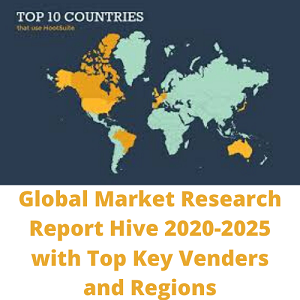When Kaan Gunay was living in Turkey at 18 years old, he got interested in windsurfing. In less than a year, he competed semi-professionally in the Windsurfing World Championship.
That’s just a sneak peek at how determined he is when pursuing a goal.
Subscribe to the Crunchbase Daily
Since then, he’s gone on to invest at a hedge fund, work as a fellow at Sequoia Capital and Lightspeed Venture Partners, and obtained a Master of Business Administration from Stanford. Now he is the founder of Firefly, a startup putting digital advertisements atop ride-hailing vehicles.
For this edition of Proust Goes Tech, Gunay and I chatted over black tea (of which he has 20 cups of a day) and were only distracted twice: when two cars sporting Firefly displays passed by. During our conversation, he told me me about what it was like growing up in Turkey, a book so good he read it three times, and his issue with airports.
The interview has been edited for brevity and clarity.
![]()
What would you otherwise be doing right now?
If I weren’t the founder of Firefly, I would be trying to founder another company. I get exposed to [transportation] every day, so I think I would want to do something in transportation. Again. I think smart cities are definitely the future.
Your main fault?
My main fault is that I want to do a lot of things at the same time. So I’m working on prioritization a lot. I get very excited about different things, and then I try to jam everything into a short period of time. It just isn’t very efficient.
I haven’t been able to use any of the to-do list apps; I’ve tried so many, but I don’t think there’s a good one. So I just email myself. But then I just get annoyed where there’s too many emails in my inbox.
The quality you most desire in a tweet?
The reason I’m using Twitter is more about consuming information and trying to see what new trends are and understand what people are thinking. The beauty of Silicon Valley is that it is a small place where a lot of very smart people are constantly thinking about new things, and you’re able to interact with it. Twitter takes it into a social media environment where you can get in touch with that.
Your idea of misery?
Not having a purpose and something to work for. I did not enjoy my previous job, there was no mission to work towards. I thought at the time that’s what working was. Now I see how much I actually enjoy doing stuff with people that truly enjoy it, too.
What do you appreciate the most in your friends?
Honesty. I appreciate it a lot. I mean, I don’t like people who think too highly of themselves. Or fake people.
Your chief characteristic?
I’m very determined. If I believe something, and it’s important to me, I will not stop doing it until I get it done. When I was 18 and living in Turkey, I liked windsurfing. So I wanted to try doing it semi-professionally. Within a year, I was able to compete at the World Windsurfing Championship. It was a cool time… and then I stopped [laughter].
And then I stopped. Haha.
What skill do you wish you possessed?
I would like to speak more languages, like Mandarin or Spanish. Right now I speak Turkish, German, and English.
Your most impactful book?
How to Win Friends And Influence People. I’ve read it three times.
What defines success?
It’s happiness. If you’re happy with what you’re doing—if you’re happy in your life—I think that’s success. So just figuring out what will make you happy and work toward that success. And that’s in a personal capacity, not just professional.
When is confidence lost?
A lot of us are driven people and everybody wants to accomplish something. As there are roadblocks that come in front of you, there are things that do discourage you. I do lose confidence some days. I don’t feel supported. It happens to me. As all humans. It is more about—if you have a dream and something is threatening the dream, and there isn’t too much you can do about it, then confidence is lost.
Which buzzword is exhausted?
People talk a lot about network effect. And I don’t believe all network effects are created equal. When people see a small network effect that might not be very beneficial, they get super defensive.
What virtues do others have that you don’t?
I grew up in Turkey; it’s a very different upbringing than what you would see in the U.S. So I have different levels of interaction with family.
What impact do you want to leave behind?
It’s about making the world a better place. If I can help increase hard working Americans money, that’s very important. And if I can also help cities better understand how they work and function, and optimize around it, that’s really important.
What’s the biggest problem tech is failing to solve?
Travel times. I mean, to this date, airplane travel times have been pretty consistently long and pretty bad. Imagine a Hyperloop world. If I could teleport that would be amazing. Technology is trying to do something, but I don’t think it is evolving as quickly as it should.






Recent Comments